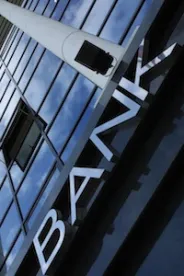On August 8, the Commodity Futures Trading Commission announced three separate measures designed to enhance the protection of customer funds.
The CFTC approved an order to exempt Federal Reserve Banks that maintain customer accounts for registered derivatives clearing organizations (DCOs) that have been designated by the Financial Stability Oversight Council as systemically important Financial Market Utilities (Designated FMUs) from liability under the Commodity Exchange Act (CEA). (Only three CFTC-registered DCOs are Designated FMUs: the Chicago Mercantile Exchange, Inc., ICE Clear Credit LLC and the Options Clearing Corporation.) This exemption facilitates the use of Federal Reserve Banks by Designated FMUs in order to reduce settlement risk and strengthen settlement processes, while limiting the risk presented by such Designated FMUs to the Federal Reserve Banks. To avail itself of the exemption, a Federal Reserve Bank must ensure that customer funds are not commingled with the money, securities or property in the account of any other person, including the proprietary account of the Designated FMU. The order also exempts the Federal Reserve Banks from private rights of action that could otherwise be brought under the CEA.
Separately, the CFTC’s Division of Clearing and Risk (DCR) and the Division of Swap Dealer and Intermediary Oversight (DSIO) issued interpretative and no-action guidance regarding the use of money market funds (MMFs) by DCOs and futures commission merchants (FCMs).
As explained in greater detail in DCR’s interpretive guidance, Letter No. 16-69, the Securities and Exchange Commission has adopted amendments to Rule 2a-7 under the Investment Company Act of 1940 (Rule 2a-7) to strengthen MMFs. The amendments will take effect on October 14. Among other provisions, the amendments require each MMF that is a “Prime Fund,” i.e., an MMF that is not a “government MMF,” as defined in Rule 2a-7, to reserve the right, upon the occurrence of certain events potentially affecting the ability of the MMF to redeem shares promptly, to suspend redemptions for up to 10 days and impose liquidity fees of up to 2 percent of the value of the shares requested to be redeemed (collectively, Redemption Restrictions). Government MMFs may, but are not required to, adopt similar Redemption Restrictions.
The DCR’s interpretative guidance sets forth the staff’s view that, as a result of modified Rule 2a-7, Prime Funds and government MMFs that elect to adopt Redemption Restrictions pose more than minimal liquidity risks and it would be inconsistent with relevant provisions of Part 39 of the CFTC’s regulations to permit a DCO to accept or hold initial margin in such MMFs, or to invest funds belonging to its clearing members, or clearing members’ customers, or the DCO in such MMFs. However, government MMFs that do not elect to adopt Redemption Restrictions would continue to be viewed as acceptable margin collateral and investments for DCOs.
For the same reasons, DSIO has confirmed in its no-action letter, Letter No. 16-68, that, once the amendments to Rule 2a-7 go into effect, FCMs will no longer be permitted to invest customer funds in Prime Funds or government MMFs that elect to adopt Redemption Restrictions, with one exception. DSIO will not recommend that the CFTC take an enforcement action against an FCM that invests its own funds held in segregated accounts in Prime Funds and government MMFs that retain authority to impose Redemption Restrictions, provided that, such investments are limited to the amount of the FCM’s own funds that the FCM holds in excess of the FCM’s targeted residual interest for such account. Separately, DSIO will not recommend that the CFTC take an enforcement action against an FCM that invests customer funds in a government MMF that has not elected to adopt Redemption Restrictions, without regard to Regulation 1.25 concentration limits, provided that, such government MMF has $5 billion or more in assets.
For a copy of the CFTC’s exemptive order, click here.
For a copy of DCR’s interpretive guidance, click here.
For a copy of DSIO’s no-action letter, click here.




 />i
/>i

